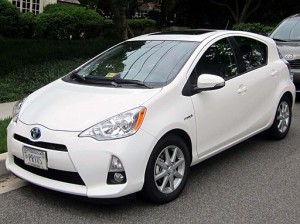
Toyota Prius
Toyota Motor Corporation is trying to follow the footsteps of Tesla Motors, Nissan Motor and General Motors in the development of electric cars. Toyota is well-known for the production of hybrid cars that utilize traditional engines, and it has been skeptical of delving into the fully electric car market. Instead, it has been investing in researching on hydrogen fuel-cells. The automaker’s president, Akio Toyoda, who was in charge of branding the luxury division of Lexus, will oversee the newly set-up electric car Department of Business, planning alongside other executives. The push for electric cars follows Toyota’s president’s move to increase autonomous car research.
A one million dollar investment has been made on the project with several employees hired in Silicon Valley. Toyota, which is the largest car maker globally in terms of profit and sales, has substantial financial resources to utilize in future projects. Meanwhile, Volkswagen AG, its primary competitor has settlement costs and fines amounting to billions of dollars in relation to cheating on emissions tests in the United States. Mr. Toyoda, who is the grandson of the automaker’s founder, has plans of manufacturing cars that can drive themselves by the year 2020. However, Toyota has a likelihood of engineering vehicles that require driver engagement in the operation process.
While the pioneering work of Google on autonomous cars has resulted in a great investment in driverless-car research, electric-car research is also making progress. It is essential for automakers to react to the current regulatory and emission pressures that are overshadowing the lack of demand for battery cars such as BMW i3 and Nissan Leaf. Although Toyota has been focusing more on fuel cells, the automaker seemed to be interested in joining the electric car market many years ago. Toyota started by investing in Tesla in 2010 before launching the Model S electric car sedan. Toyota made an agreement with Tesla to purchase batteries from Tesla, a deal which ended following disagreements between Toyota and Elon Musk.
Toyota still has plans of selling thirty thousand fuel-celled cars per year by 2020, which will coincide with Tokyo’s Summer Olympics. But there are some challenges currently faced. For instance, there have been delays in constructing hydrogen refueling stations, especially in California. This has hampered the sales of Mirai’s fuel-cell car. Recently, Toyota announced that it had plans of setting up a unit for building a battery-powered vehicle that will be marketed quickly. This move has come at a time when the Prius hybrid car sales have been declining in the United States.